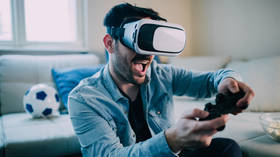Virtual reality leads to even more physical damage


2021 saw a 31% increase in insurance claims involving VR headsets, according to a report by the Guardian which cites UK insurer Aviva, which says home contents applications have risen 68% since 2016.
“As new games and gadgets become popular, we often see this playing through in the claims made by our customers,” said Kelly Whittington, Aviva’s UK property claims director. “In the past we’ve seen similar trends involving consoles with handsets, fitness games, and even the likes of rogue fidget spinners.”
The incidents include people upper-cutting ceiling fans, body-slamming into furniture and expensive TVs, and smashing lighting fixtures and expensive figurines after being scared by a zombie or being prompted to do a sweeping gesture. Aviva says the average VR-related claim for accidental damage in 2021 was around $922 (£650).
🟨Punched ceiling fan🟨Broken furniture🟨Smashed lightingWe’ve seen a 31% increase in home contents claims involving VR headsets in the last year, and a 68% increase since 2016!If you have a VR headset, take care. https://t.co/nyfZ6dqCdu
— Aviva plc (@avivaplc) February 14, 2022
The Aviva spokesperson says the company has accepted and settled such claims, adding that “These devices can be a great source of fun, but we’d encourage people to be mindful of their surroundings and take a look at their home insurance to make sure it suits their needs.” Whittington also urged people to add accidental damage coverage to their home insurance plans.
Given the increasing popularity of VR and the affordability and accessibility of headsets like the Oculus Quest 2, it’s expected that home content claims will only increase in the near future. Whittington all but confirmed this by saying that since a lot of people received VR headsets as presents this past Christmas, the requests are already coming in, and the company expects even more.
Aviva urged its customers to be more careful when playing VR and make sure that the play area is clear of anything that might be damaged.